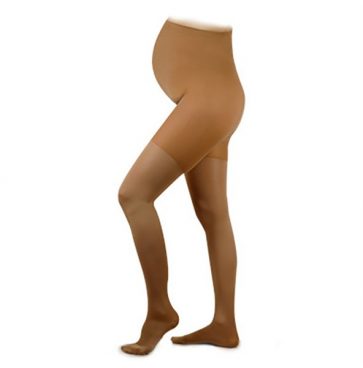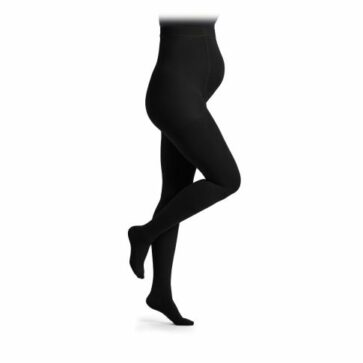Pregnancy – A Guide
During the last three months of pregnancy, swollen ankles, leg pain, back pain and trouble with sleeping can all be extra challenges you can do without.
Our simple guide provides advice on steps you can take to reduce leg pain in pregnancy – including information on why wearing special maternity compression hosiery is a great way to help alleviate the effects of pregnancy on your legs, feet and ankles.
For Pregnancy, Daylong recommends:
What are the effects of Pregnancy on your legs and feet?
As your baby grows, your uterus expands and pushes your internal organs and tissues into an increasingly small space. Veins within your pelvis then become squashed, slowing down the flow of blood and making it more likely that swelling, often called oedema, will affect your legs. This is why your feet and legs can feel heavy, and your ankles may look visibly swollen. Here are the effects of pregnancy on your legs, feet and ankles:- You may have tired and very heavy-feeling legs
- Your ankles can become swollen and heavy, particularly towards the end of the day
- You may see dark veins appear in your legs, either as thread veins (very small) or larger, deeper, varicose veins
- You may experience an aching sensation in your pelvis or lower back
How to prevent leg problems in Pregnancy
While the last few months of pregnancy can put a lot of pressure on your legs, the arrival of your baby will end most of the leg pain you may have experienced. That said, having a new baby is hard work, and you may still find your legs are aching and tired. For this reason, many women find wearing support stockings after pregnancy is an easy way to reduce leg pain. Taking care of your weight, your legs, and your general health may help you avoid varicose veins as you get older too. See our maternity page for products that can help with leg problems in pregnancy.What causes leg pain in Pregnancy?
Leg problems in pregnancy can be caused by a number of things. It could be that:- Your body retains more fluid caused by extra hormones produced during pregnancy
- Your feet and ankles swell due to the pressure of the uterus on the pelvic and leg veins, combined with this extra fluid
- You suffer with piles (haemorrhoids) and varicose veins due to pooling of blood in the veins, in your pelvis and legs
Top tips to protect leg pain in Pregnancy
There is a lot you can do to ease the discomfort of leg pain in pregnancy. One recent study found that pregnant women with serious circulation problems were better off if they kept active and wore compression garments than if they rested in bed.- Keep active: but don’t overtire yourself. Rest with your ankles raised higher than your bump whenever you can – for at least 20 minutes at a time
- Wear maternity compression hosiery: ask your doctor or pharmacist for advice about maternity compression stockings or support tights – these can make your legs feel much more comfortable. They can be really useful if you need to work quite late into pregnancy, or if you have older children to take care of
- Do not sleep on your back: instead turn onto your side as this puts less pressure on the main vein in your abdomen


